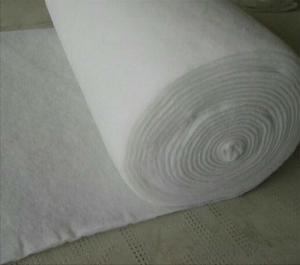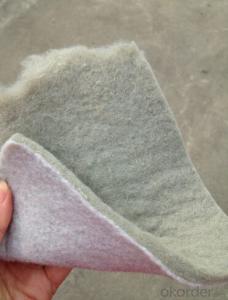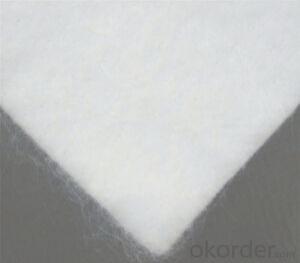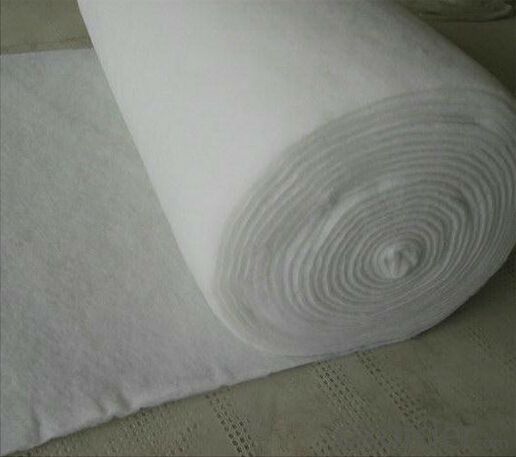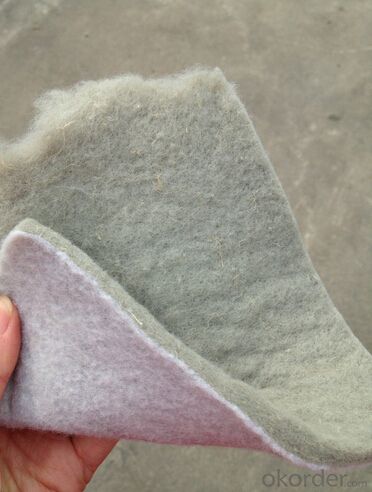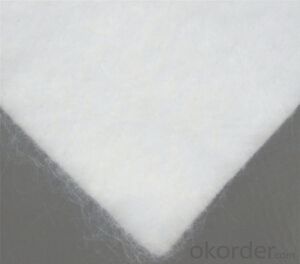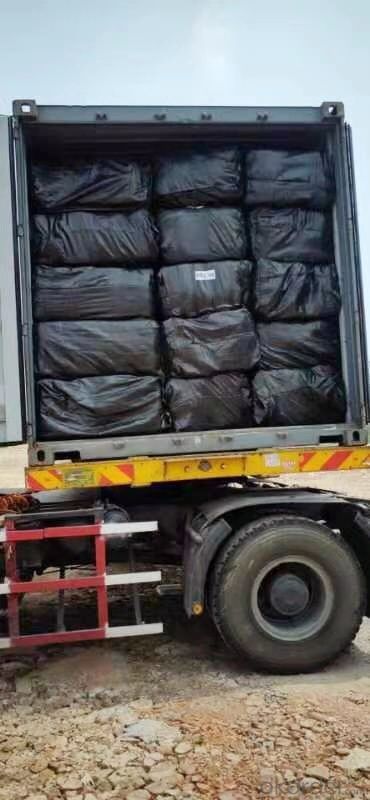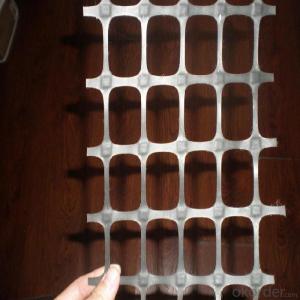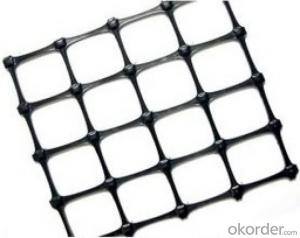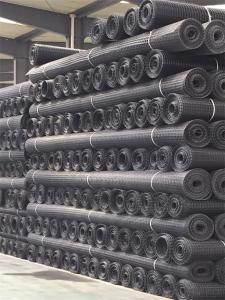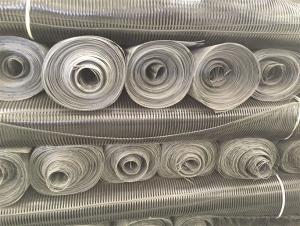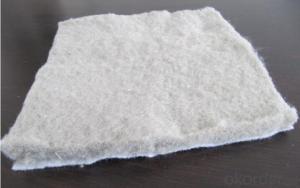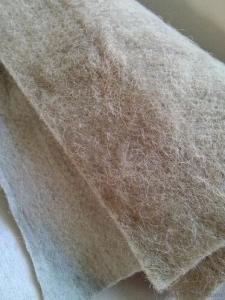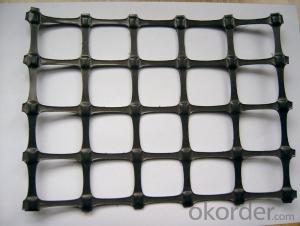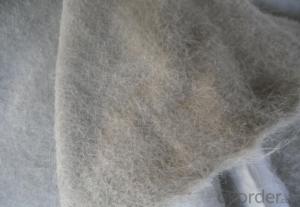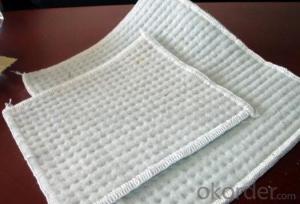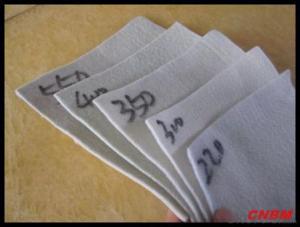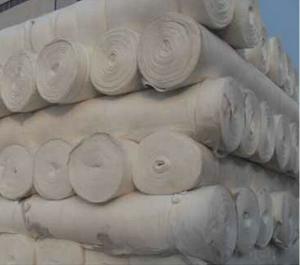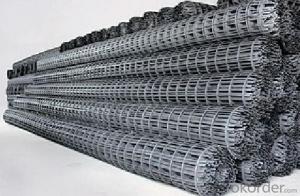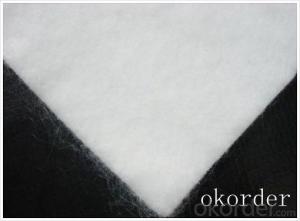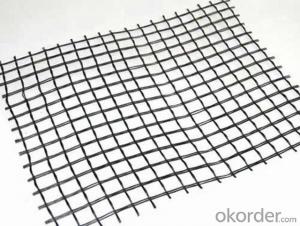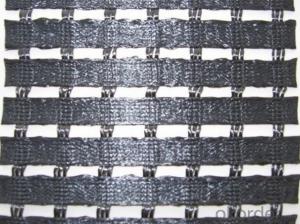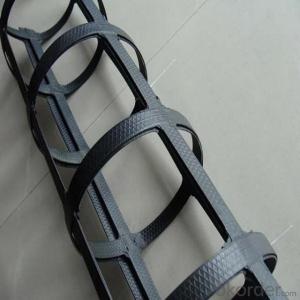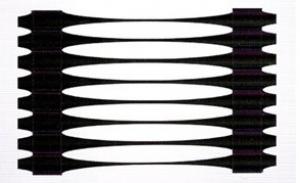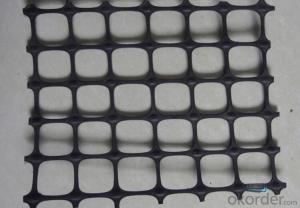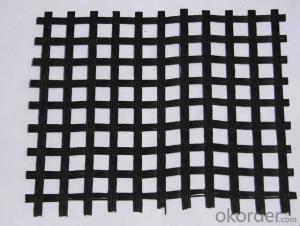Geogrids for Roads - Planting Grass Nutrition Geotextile Nonwoven Geotextile Professional Geotextile Membrane
- Loading Port:
- Qingdao
- Payment Terms:
- TT OR LC
- Min Order Qty:
- 5000 m²
- Supply Capability:
- 2000000 m²/month
OKorder Service Pledge
OKorder Financial Service
You Might Also Like
Nutrition geotextile in water environmental engineering .
Specification:
Planting grass geotextile has the very good fabric clearance, good adhesion ability soil particles
Product Feature:
1. Simple and fast construction
2. Achieve the greening effect quickly after construction
3. Due to the grass and composite fiber fabrics become into one integration, so it has the ability of certain degree of flow resistance for the water rising before the grass survive.
4. Composite fiber fabric is a continuous structure from slope top to slope toe, both ends are fixed, has high water flow resistance.
Technical Specification
5.0 m length and 1.05 m width. Reverse side all used filter material. Grass seeds: Bermuda grass (warm season grass), Bahia grass (warm season grass), Kentucky bluegrass (cold season grass), Tall fescue grass (cold season grass), Red fescue grass (cold season grass). Plant height: 0.1 ~ 0.5 m.
| NO. | Items | Specification | Notes | |||
| 1 | Total unit area weight g/sq.m | ≥380 | ||||
| 2 | dimension | width m | 1.0~2.0 | |||
| length m | as per user’s request | |||||
| 3 | Composite fiber fabrics | Material | Polyester Fiber | High strength PET | ||
| Unit area weight g/sq.m | ≥160 | |||||
| Mesh dimension mm | 8×8 | |||||
| Extension strengh kn/m | ≥11 | MD & CD | ||||
| 4 | Filtra layer | Material | Polyester non woven geotextile | |||
| Unit area weight g/sq.m | ≥40 | |||||
| 5 | Grass seeds, Fertilizer | Type | According to actual situation choose 3~5 grass seeds | |||
| Plant height m | 0.1~0.3 | |||||
| 6 | Fiber layer | Material | wood pulp cellulose | |||
| Unit areaweight g/sq.m | ≥15 | |||||
| 7 | flow resistance | ≥4 | not allow appear scour, suction and blanket turn-over etc. damage phenomenon | |||
| M/s | ||||||
| 8 | Anti-UV strengh conservation rate % | 65~80 | 3000hrs Continuously exposure 3000hrs | |||
| 9 | Supporting spare parts | ABS fastening nail | Material | ABS Resin | Fixed between two blankets by length direction | |
| Fiber diameter mm | 35 | |||||
| Nail length mm | 325 | |||||
| Lnail | Material | Steel wire (content 10% zinc-aluminium alloy) | Used to fix single blanket | |||
| Fiber diameter mm | 4 | |||||
| Nail length mm | 200 | |||||
| ABS connecting nail | Material | ABS Resin | Used in the slope between the two blankets ( width direction) | |||
| Nail length mm | 38 | |||||
| Connecting fiber | Material | High strength Polypropylene | Used in the slope between the two blankets ( width direction) | |||
| Length mm | Cut as per request | |||||
APPLICATION:
Generally laid on the river channel, slope protection etc. slope revetment projects, to control the water erosion, soil loss, meantime can reach the effect of slope ecological restoration and landscape greening, making river back to natural.
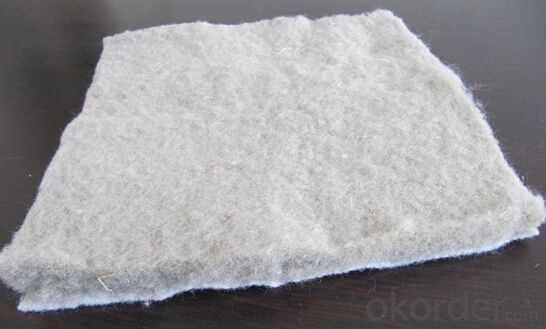
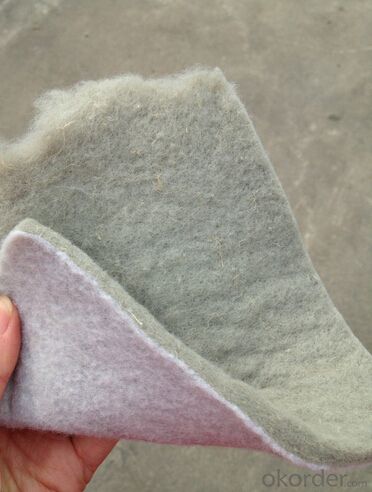
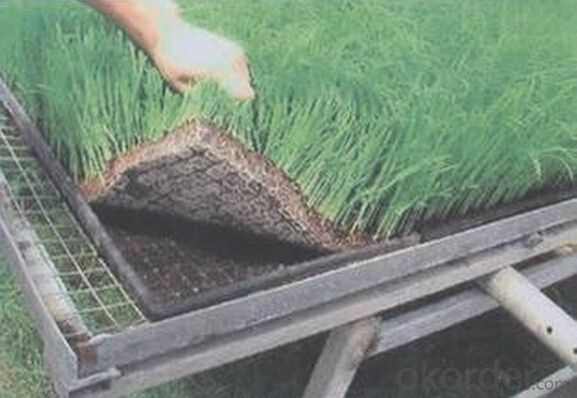
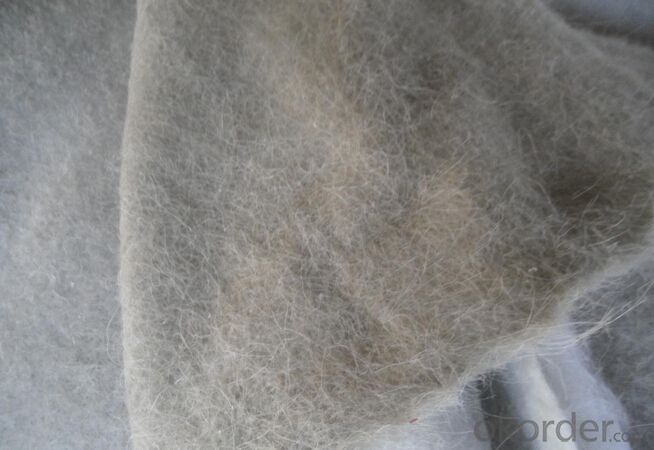
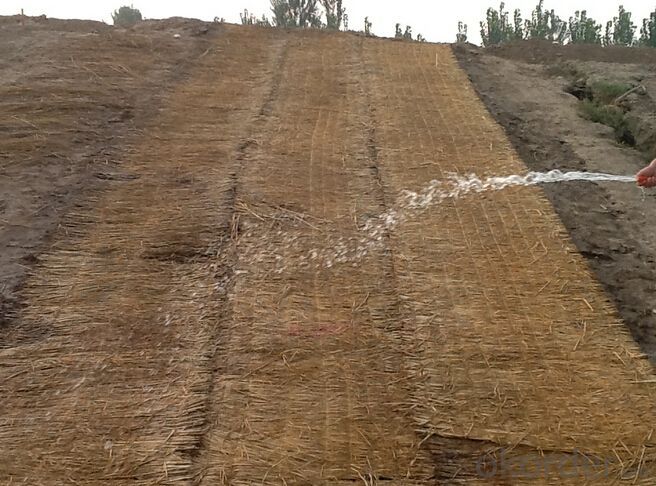
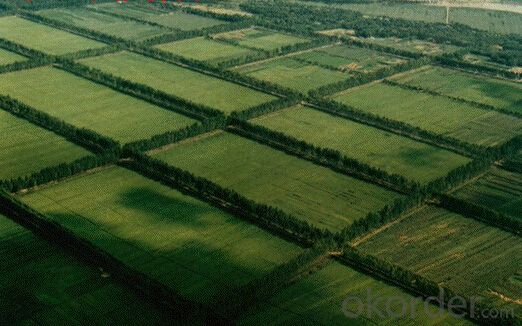
- Q: How do geogrids improve the performance of asphalt pavements?
- Geogrids improve the performance of asphalt pavements by providing reinforcement and stabilization. They enhance the tensile strength of the pavement, preventing cracking and rutting caused by traffic loads. Additionally, geogrids reduce reflective cracking by distributing the stress from underlying layers, improving the overall structural integrity and lifespan of the pavement.
- Q: Peel force mainly in the size of raw materials
- The size of the weld area directly affects the size of the peeling force
- Q: Product specifications and performance parameters of glass fiber grating
- gg2525≥25≥25 12~50 1~6≥30≥30≤3≤3≤3≤3 gg3030 12~50 1~6 gg4040≥40≥40 1~6 gg5050≥50≥50≤3 12~50≤3≤3≤3≤3≤3 12~50 1~6 gg8080≥80≥80 12~50 1~6 gg100100≥100≥100≤3≤3≤3≤3 12~50 1~6 gg120170≥120≥120 12~50 1~6
- Q: Are geogrids suitable for use in green roof systems?
- Yes, geogrids are suitable for use in green roof systems. They provide structural support and reinforcement for the soil and vegetation layers, helping to prevent soil erosion and improve the overall stability and longevity of the green roof system. Geogrids also aid in distributing the load and reducing stress on the roof structure.
- Q: Geogrid price list geogrid products list geogrid manufacturers list
- The plastic geogrid is a kind of polymer material with square or rectangular shape which is formed by stretching, and it can be used as two kinds of uniaxial tension and biaxial tension. The utility model is punched on the extruded polymer plate (raw material is polypropylene or high-density polyethylene), and then directionally stretched under the heating condition
- Q: How do geogrids enhance the performance of geocomposite drainage systems?
- Geogrids enhance the performance of geocomposite drainage systems by providing structural reinforcement and preventing the formation of localized stress points. They distribute the load more evenly, increase the overall stability and strength of the system, and minimize the risk of soil settlement. Additionally, geogrids help to improve water flow and drainage efficiency, reducing the likelihood of clogging and ensuring the long-term effectiveness of the geocomposite drainage system.
- Q: What is the single geogrid 60kN/m
- Unidirectional geogrid, the tensile strength is not less than 60 kn per meter
- Q: Which is better than geotextile and geogrid
- The strength of the geogrid is much larger than that of geotextile, but the effect of geotextile on the road to prevent reflection crack is obviously stronger than that of Geogrid
- Q: What are the different testing methods for geogrids?
- There are several testing methods for geogrids, including tensile strength testing, creep testing, puncture testing, and pullout testing. These methods are used to evaluate the performance, durability, and suitability of geogrids for various applications in civil engineering and geotechnical projects.
- Q: How do geogrids improve the performance of unpaved parking lots?
- Geogrids improve the performance of unpaved parking lots by increasing the stability and load-bearing capacity of the surface. They distribute and reinforce the weight of vehicles, reducing rutting and potholes. Additionally, geogrids prevent the migration of aggregate materials, enhancing the longevity and overall durability of the parking lot.
Send your message to us
Geogrids for Roads - Planting Grass Nutrition Geotextile Nonwoven Geotextile Professional Geotextile Membrane
- Loading Port:
- Qingdao
- Payment Terms:
- TT OR LC
- Min Order Qty:
- 5000 m²
- Supply Capability:
- 2000000 m²/month
OKorder Service Pledge
OKorder Financial Service
Similar products
Hot products
Hot Searches
Related keywords
